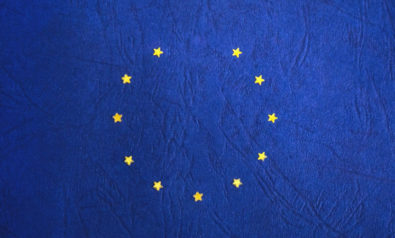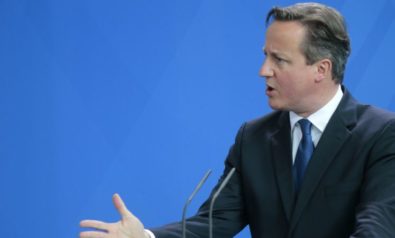Is Brexit the final nail in the coffin of Turkey’s longstanding bid to accede to the European Union?
Among the bewildering array of grim predictions and shady statistics that characterized the British referendum of membership of the European Union (EU) was one truly breathtaking claim. It came from the campaign literature of the United Kingdom Independence Party (UKIP) and the Vote Leave movement, and it stated that if the UK stayed in the EU, one key danger would be the accession of Turkey “by 2020.”
This claim was astonishing on many counts. Not only has Turkey’s accession bid been stalled now for a number of years, with interest in the project diminishing markedly within Turkey itself, but the main driver for its curtailment has been anti-Turkish sentiment within Europe.
Ironically, given the picture painted by UKIP and the Leave camp, the main obstacle to Turkish accession is anti-Turkish and broader anti-Muslim sentiment within the French and Austrian states. With even greater irony, it was actually the UK that was one of Turkey’s most consistent and vocal supporters in its accession bid.
For the UKIP claim of a Turkish entry by 2020 to come true, however, the UK would have needed to exercise monumentally more clout within the EU than it actually had. And perversely, it is the UK’s exit from the EU that has probably buried the hope of Turkish accession to the union for good.
European Islamophobia
It has become comfortable, over the past few years, to pin the blame for the failure of Turkey’s EU accession bid upon its combative president, Recep Tayyip Erdogan. Despite using the accession process as a key driver for internal reform in the early years of the Justice and Development Party’s (AKP) rule, Erdogan has since become notably cool on the project.
The result has been a stalling of reform, a regression toward conflict with the Kurdish community and a tightening of civil liberties. Within the atmosphere of instability in the Middle East, nationalism has made a resurgent comeback, and Erdogan’s Turkey can now be viewed as a deeply suspect candidate for membership.
This is a comfortable narrative, but the seeds were not sown solely on Turkish soil. The persistent anti-Islamic political debate within France and Austria, framing the EU as a “Christian club” and stating that Turkey was unsuitable to become a member, was a key motivator in alienating a majority of conservative and nationalist Turkish voters. They understood when they were not wanted.
Turkey’s European Friends
Despite French and Austrian opposition, backed by certain smaller nations, Turkish hopes rested on the support of Germany and the UK for Turkish accession. In the tripartite power balance of the EU (Germany, Britain and France), these two friends gave Turkey hope that if they merited entry, they might be granted it.
This had kept the European dream alive not only among secular, Westernized Turks in the major cities of the west, but also among key elements within the ruling Islamist party, the AKP. Ahmet Davutoglu, who was prime minister until his resignation in May, was a keen supporter of the accession process and its power to reform Turkey. He had reinstalled Volkan Bozkir as his minister for EU affairs—another powerful advocate.
However, the gradual cooling of Erdogan’s interest and his steady consolidation of power within the AKP has seen this window narrowing. With Davutoglu’s resignation, Erdogan has replaced Bozkir with Omer Celik, someone who will have a far less conciliatory agenda. Furthermore, the recent EU-Turkey deal on migration has set a new tone for relations.
The New Nationalism
If the Brexit vote reveals anything, it is the emergence of a resurgent and belligerent nationalism across Europe. It is a nationalism that could yet destroy the EU project entirely, with potentially violent consequences. Key drivers have been economic decline and mismanagement, coupled with the eagerness of those in far more impoverished African and Asian states to seek new opportunities in Europe.
The desperation with which the EU has sought a deal with Turkey to close its western border to migrants must surely strike Erdogan and many in Turkey as deeply hypocritical and protectionist. It does not account, after all, for the fact that refugees continue to flow into Turkey from the east, that Turkey is already burdened with one of the highest refugee populations in the world, and that they will simply mass on the Turkish border with the EU.
The Brexit vote will have sent another key signal to Erdogan, one that Russian President Vladimir Putin has already acknowledged with undisguised satisfaction: the European states are shutting up shop. They are pulling up the drawbridges and each nation state must fend for itself.
In this harsh new landscape, the Turkish EU accession dream will wither even faster than before.
The views expressed in this article are the author’s own and do not necessarily reflect Fair Observer’s editorial policy.
Photo Credit: The White House
 We bring you perspectives from around the world. Help us to inform and educate. Your donation is tax-deductible. Join over 400 people to become a donor or you could choose to be a sponsor.
We bring you perspectives from around the world. Help us to inform and educate. Your donation is tax-deductible. Join over 400 people to become a donor or you could choose to be a sponsor.
Support Fair Observer
We rely on your support for our independence, diversity and quality.
For more than 10 years, Fair Observer has been free, fair and independent. No billionaire owns us, no advertisers control us. We are a reader-supported nonprofit. Unlike many other publications, we keep our content free for readers regardless of where they live or whether they can afford to pay. We have no paywalls and no ads.
In the post-truth era of fake news, echo chambers and filter bubbles, we publish a plurality of perspectives from around the world. Anyone can publish with us, but everyone goes through a rigorous editorial process. So, you get fact-checked, well-reasoned content instead of noise.
We publish 2,500+ voices from 90+ countries. We also conduct education and training programs
on subjects ranging from digital media and journalism to writing and critical thinking. This
doesn’t come cheap. Servers, editors, trainers and web developers cost
money.
Please consider supporting us on a regular basis as a recurring donor or a
sustaining member.
Will you support FO’s journalism?
We rely on your support for our independence, diversity and quality.

































